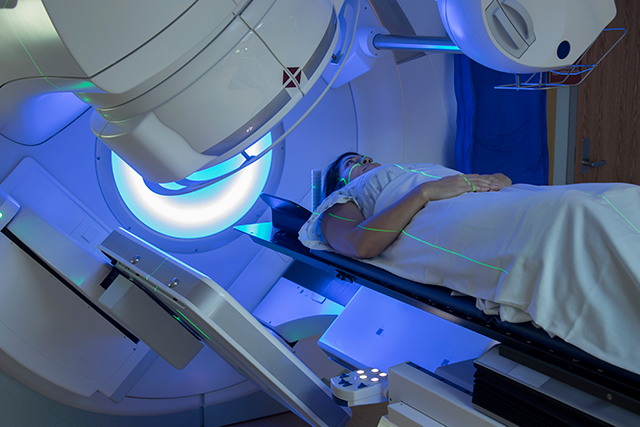Cancer care is moving from the three pillars of cytotoxic chemotherapy, radiotherapy, and surgery to regimens that include targeted biologic and immunotherapeutic agents. The combination of radiotherapy and immunotherapy has shown early promise against some advanced cancers, including evidence that radiation might sensitize some tumors that are initially resistant to immune checkpoint–inhibition immunotherapy. But these investigational regimens’ suspected synergies are likely complex and might involve overlapping toxicity profiles from each treatment modality.
Immunotherapies are rapidly expanding the treatment options available for advanced cancers, confronting the ways malignant cells can overcome an effective antitumor immune system response.1-4 Unlike cytotoxic chemotherapy or radiotherapy, immunotherapy agents work by reprogramming patients’ immune systems and inhibiting tumors’ mechanisms of immunosuppression, such as the PD-1/PD-L1 and CTLA-4 immune checkpoint molecular pathways. Immunotherapy is already a standard of care in some settings and seems poised to come into routine clinical use in several others.3
Radiotherapy remains a mainstay of cancer therapy, with more than half of patients receiving radiation at some point in their treatment.2-5 Just as radiotherapy has long been used in combination with surgery and chemotherapy, combination regimens involving radiotherapy and targeted biologic or immunotherapies are now emerging treatment strategies.1-8 Radiotherapy was long assumed to kill tumors via DNA-damage-induced apoptosis or programmed cell death, but there is increasing evidence that it also affects tumor microenvironments and a number of facets of patients’ antitumor immunity.7,9-12 Some researchers argue that radiotherapy “may act as a primer for or stimulus to initiate or augment an immune-mediated antitumor response.”12 While still largely experimental, the evidence base for combined radiotherapy plus immunotherapy is rapidly evolving, and although data is accumulating, little is yet known about the specific toxicities experienced by patients undergoing these regimens.
Already, patients are likely to have received both radiotherapy and immunotherapy during the course of their cancer treatments. It appears likely that in the near future, immunotherapy will become formally integrated with clinical radiation oncology.2
